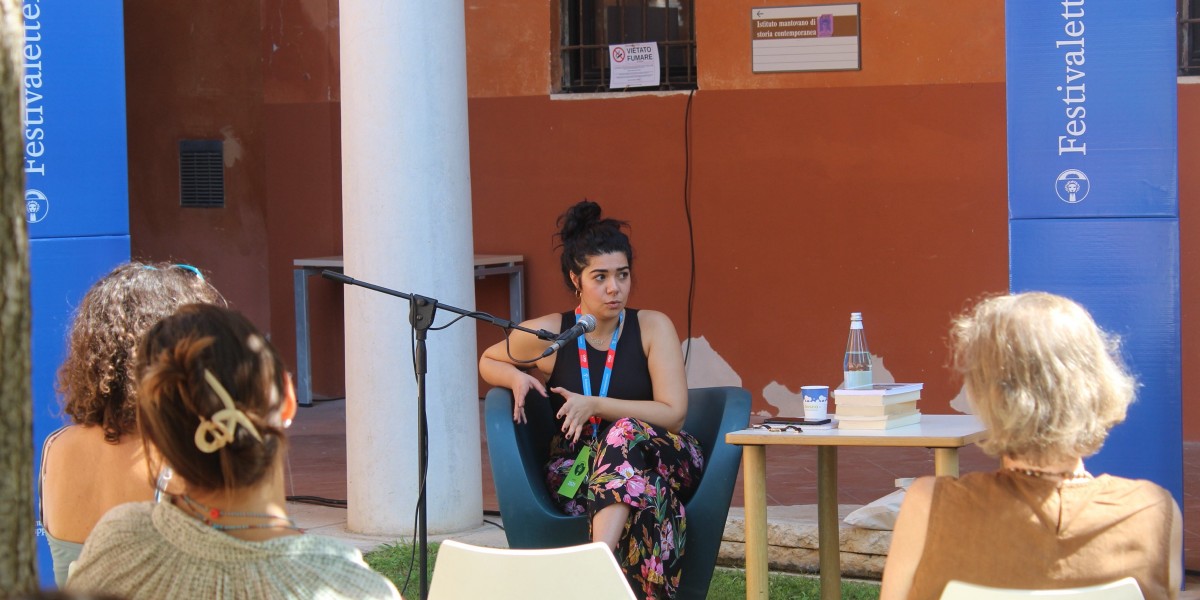
Translation becomes call to action with Leila Belhadj Mohamed
Arab world? Arabophone, clarifies Leila Belhadj Mohamed. Language is what binds "a world of differences, often trivialised as a monolith”. In her open-air lecture, the Italian Tunisian journalist and activist counters this trivialisation of difference by stitching together a narrative made of five books; all by authors who chose Arabic over the language of their colonial invaders, all books now translated into Italian.
From the tale of family migration and forced separation in the Kuwait of Saud Al Sanousi's Canna di bambù (The Bamboo Stalk), to the murder mystery centred around a gay protagonist in the Palestine of Abbad Yahya’s Delitto a Ramallah (Crime in Ramallah), Leila interrogates repression and resistance as portrayed and experienced first-hand by the authors in her curated list. Stories reclaiming freedoms, recognition, and the right “to be” for collectives and individuals.
And yet, the verb “to be“ does not exist in Arabic. “If I say I in Arabic, it already implies I exist, I am”. There’s a lesson here that goes beyond the effort of translating Arabic into Italian. It’s a lesson about another kind of effort , the effort we should bring to cross-cultural contacts in the media, in politics, in our everyday. What’s lacking in these encounters is the recognition of each person’s “I”. “Us" and "them” remain the preferred pronouns of mainstream discourse surrounding Italy’s relations with Arabophone countries. Good intentions are not enough, “integration” is misleading. Admitting our ignorance? A start.
The temptation is to ask for “more” from these very individuals, from the authors, from Leila. But it’s another misstep. Several audience members congratulate Leila on her knowledgeable and powerful delivery. Compliments are genuine and well deserved. Yet, she, and all those navigating dual identities like her, cannot be always asked to do it all. “If editors don’t want to publish something I wrote, what can I do?”.
More than rewarding individuals, then, we should be holding systems accountable. The goodbye is blistering, a plea, an example of what can be done. Khaled El Qaisi is an Italian Palestinian citizen and student, currently detained with no accusation by Israel. Why we need to see Khaled free and unharmed needs no translation.



